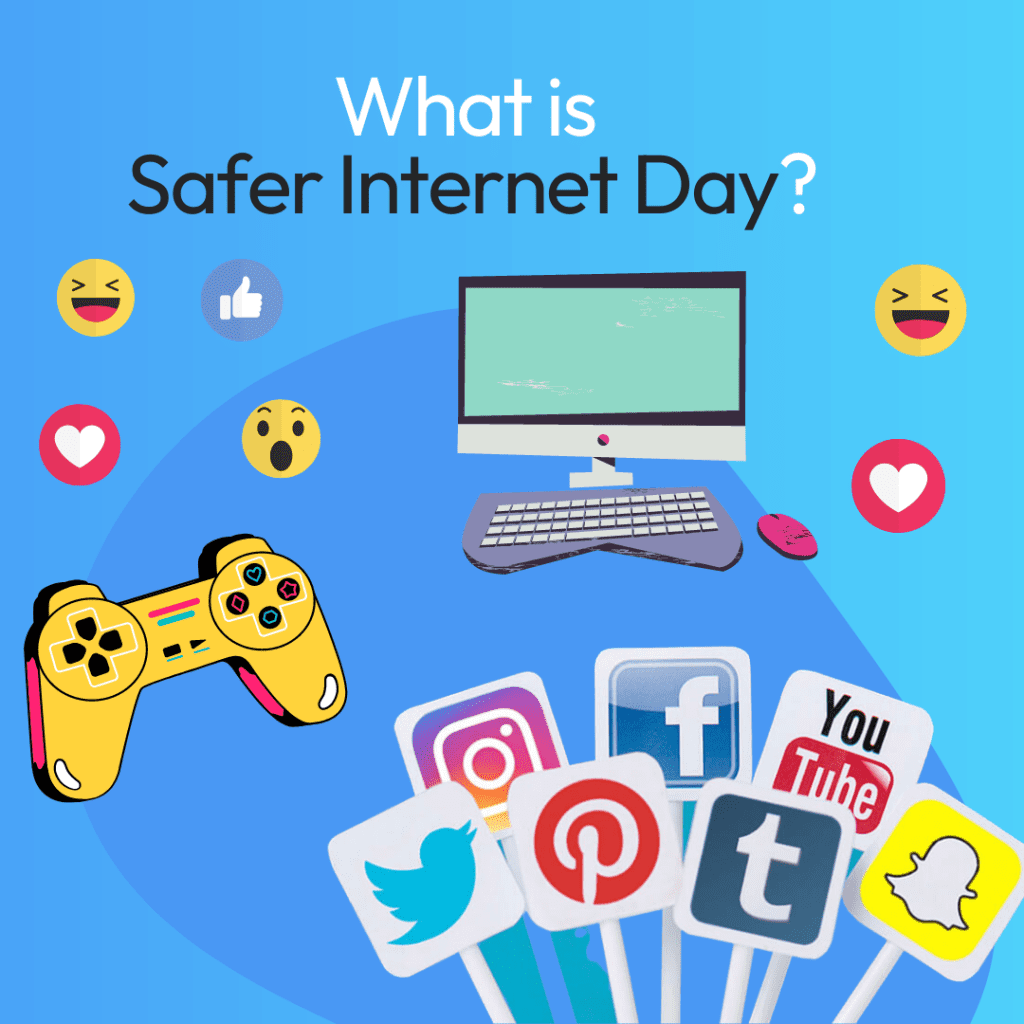This year marks the 20th Edition of Safer Internet Day, which seeks to make the internet a safer spot for kids.
When Safer Internet Day launched in 2004, the cyber world looked differently than it does now. Mark Zuckerburg was just launching a little website called Facebook. Steve Jobs was still several years from launching the iconic iPhone. Internet cafes were popular, especially with college students, who maybe didn’t own their own laptop or PC, and internet-enabled phones weren’t quite a thing yet. Napster was the most common way for internet users to access and share music. And, most mind-blowing of all, perhaps, is that Amazon, established and growing already, was still a site that most people visited largely to buy little more than multimedia: books, CDs (yep, those were still popular in 2003!), DVDs and the like.
It’s safe to say that the world has come a long way since 2003. And the internet is no exception! Kids these days, like the rest of us, are super connected. The internet is a place where they can connect with family members, play video games, use social media, get help with their homework, shop for anything under the sun and so much more.
But all of the connectivity of the internet, as awesome as it can be, also comes with a slew of unwanted side effects. It allows our kids access to strangers and can enable them to be coaxed into poor decision making. It can put them at-risk of being contacted and stalked by adults (or other kids) who intend to cause them harm, both physical and mental. It can encourage them to engage in stupid and sometimes harmful (and illegal!) pranks. And it can lead to repercussions that have real-world consequences beyond what we see on the screen.

The birth of safer internet day
Safer Internet Day, which began in 2004, was started as an initiative of the EU SafeBorders project. In 2009, Safer Internet Day launched internationally and is currently recognized in more than 180 countries. Safer Internet Day is celebrated on the second day of the second week of the second month of the year. This year, Safer Internet Day is on February 7. The goal of Safer Internet Day is to raise awareness about concerns that affect the cyber world, such as cyberbullying and social networking.
How you can get involved
There are a number of ways that you can get involved with campaigns that support Safer Internet Day’s mission to educate young people about online safety. The website provides a variety of resources to anyone looking to increase awareness about internet safety, including kids, parents, teachers, community liaisons and so on. This year’s theme, Together for a Better Internet, is backed in the US by the National PTA. Be on the lookout for a virtual event you can attend entitled “No Room for Doom: Helping Your Family Thrive in our Digital Age.”
How can you make the internet safer for your child?
When it comes to keeping your child safe online. There are many things you can do. While it sometimes may feel like keeping your kids off the internet is the safest thing to do, it is not at all a realistic approach! With that said, it is reasonable to do the following:
- Set screen time limits your family can agree with – this includes taking educational/ school screen time into consideration. Try coming up with a tech contract for each member of the household.
- Keep the lines of communication open with your child about online safety. Share relevant news stories with your children about online dangers to ensure that they are aware of the risks and dangers online. It is important that you children have knowledge and are educated in order to keep them safe.
- Use protective softwares on your child’s computers. Software like ProtectMe can keep you informed on whether or not your child comes in contact with any risks while playing online games on their PC. It is important that parents be able to gain insights into their child’s gaming safety when they spend so much time gaming online. Kids can easily communicate with strangers and predators online with very little awareness. Keep your children safe by adding a protective measure like ProtectMe to their computer.
Additional resources
If you are wanting to get involved to encourage internet safety year-round, here are a few additional resources from Safer Internet Day’s website that may help you educate kids and young adults about the importance of staying safe online.
- Digital Security Guide for preschoolers
- Sexting- a guide for talking to your preteen and teen
- Internet privacy and kids
- Cyberbullying
- Gaming and online addiction
The internet can be safe, fun place for kids if we help them learn how to navigate it properly!